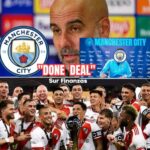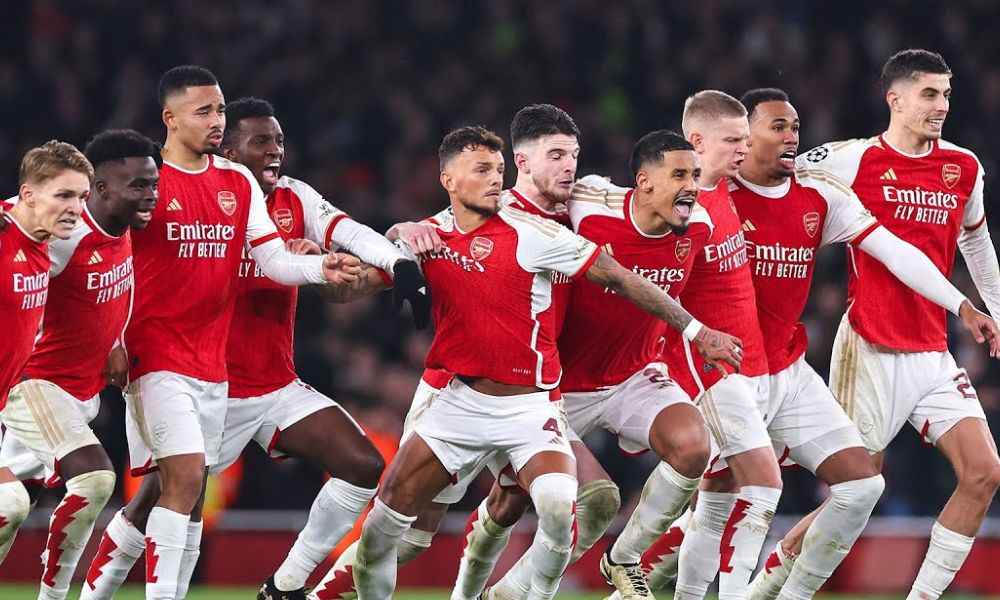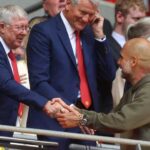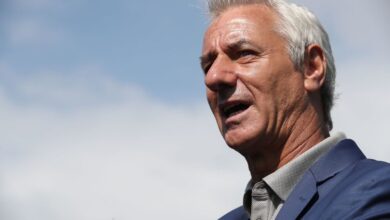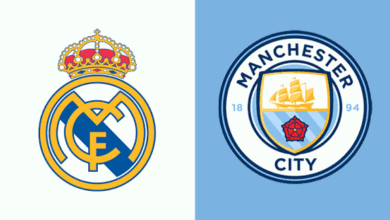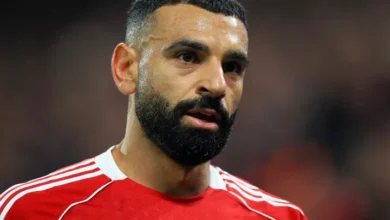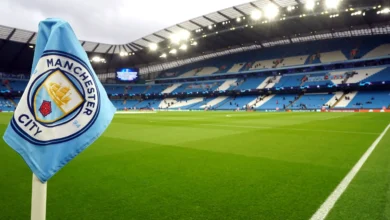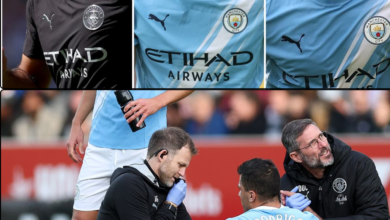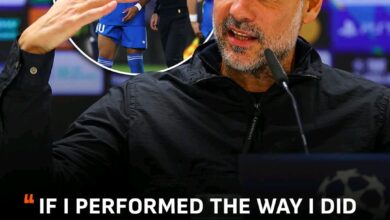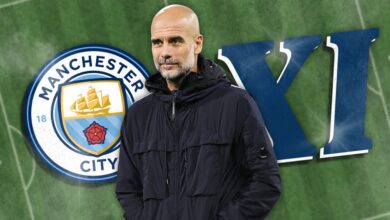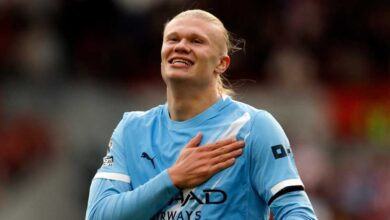Manchester City owners team up with River Plate to sign exciting Argentine striker
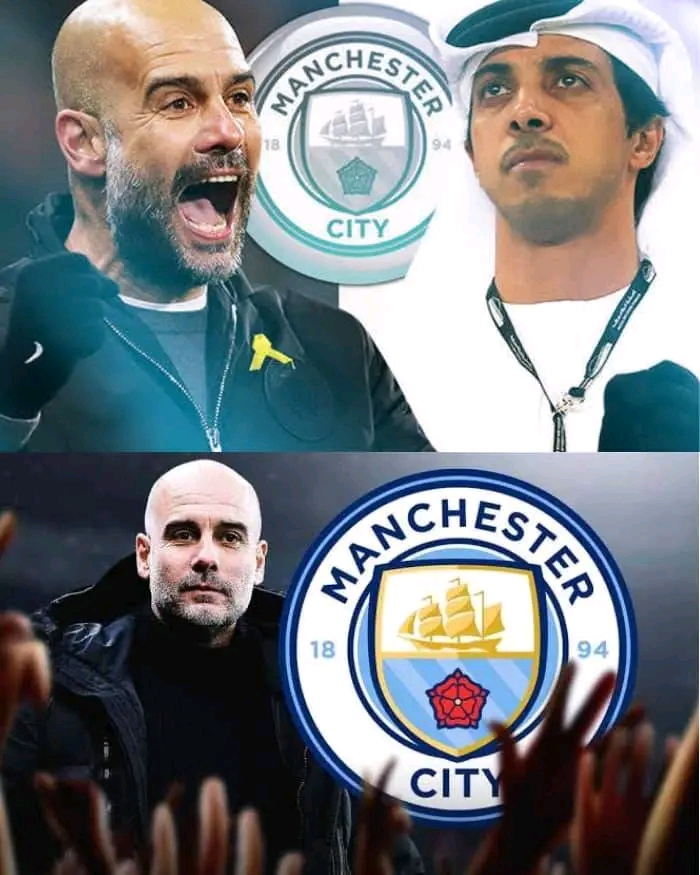
When Sir Alex Ferguson speaks, the football world listens. Even years after leaving the Manchester United dugout, the legendary Scottish manager still carries an aura that demands attention. His words, his silence, even his laughter can shake conversations across England. And now, as the Premier League title race heats up between Manchester City and Arsenal once again, an old clip of Ferguson’s honest verdict has resurfaced, reminding everyone of where the old warrior truly stands.
The 2025 Premier League season has reached that familiar stage where emotions begin to stretch. Arsenal under Mikel Arteta are top of the table, sitting with 19 points from eight matches. They have looked balanced, confident, and hungry — the kind of hunger Ferguson used to see in his own Manchester United teams. Their wins over Manchester United and Newcastle showed strength. Their 1-1 draw with Manchester City in September proved they can go toe-to-toe with Pep Guardiola’s machine. And their only loss, a narrow 1-0 at Anfield, looked more like a learning curve than a weakness.
City, on the other hand, started the campaign in a confusing rhythm. For a team built on control, they looked strangely human in the early weeks. Two defeats in their first three games sent shockwaves through the Etihad. Critics whispered that Pep’s reign might be fading, that the hunger had finally disappeared after years of domination. But Guardiola did what Ferguson himself always did — he adjusted. He fixed. He evolved. The signing of Gianluigi Donnarumma and the rediscovery of Erling Haaland’s monstrous form flipped the story. City bounced back, winning four of their last five matches and conceding only two goals in that run. The machine was awake again.
As of this weekend, Arsenal lead. City chase, just three points behind. Liverpool lurk, rebuilding their fury under Arne Slot. Chelsea and Tottenham remain hopeful outsiders. But deep down, most people know the truth: this title race looks like a duel between Arteta and Guardiola. Between the student and the master. Between the apprentice who studied under Pep at City and the genius who taught him the art of football dominance
It was during a different title race, back in the 2023/24 season, when Ferguson was asked a simple question by ITV Racing. The interviewer wanted to know which of the two giants — Arsenal or City — he would rather see win the Premier League. Ferguson looked straight at the camera, face calm, eyes sharp, the same eyes that once scanned touchlines and broke opponents mentally. And he said just two words: “I’m not interested.”
It was classic Ferguson. Cold. Sharp. Brutally honest. He didn’t need to say more. The interviewer, Matt Chapman, tried to play along, replying, “Sensible. Very sensible. You know the game, don’t you, Sir Alex?” But Ferguson didn’t flinch. He just stared, expression unreadable. Seconds later, he broke into a little laugh — the kind of laugh that says more than a full paragraph could ever explain.
That moment said everything about his feelings. Sir Alex Ferguson doesn’t pick between Arsenal and Manchester City. He sees both as rivals. To him, City are the noisy neighbours who became rich and powerful. Arsenal are the old foes from the golden days — the club that once battled his United for every inch of glory in the late 90s and early 2000s. To choose between them would be like choosing between two enemies. So he simply refused.
For Manchester United fans, that short clip became legendary. It captured the essence of Ferguson — loyal only to United, emotionally detached from the rest. Even in retirement, he remains the embodiment of United pride. His “I’m not interested” felt like a message carved in stone: the title race means nothing unless Manchester United are part of it.
Ironically, as of now, United sit ninth in the Premier League. The team under Ruben Amorim is still searching for identity, still chasing consistency. But after beating Liverpool 2-1 at Anfield last week, a spark has been lit. The players celebrated that victory as if they had rediscovered something long lost — their spirit. The win brought back memories of the old Ferguson days when going to Anfield wasn’t a mission of survival but a chance to make a statement. United fans dared to believe again.
Ferguson himself, watching from the stands or his home, would have smiled quietly. He doesn’t speak much these days about the club, but every small rise must feel like a pulse of hope. Yet he knows the difference between winning a game and building an empire. When he built Manchester United, he didn’t settle for good moments — he demanded greatness every season. That’s what he would want now.
Still, the modern Premier League is no longer Ferguson’s playground. It belongs to Pep Guardiola, who has turned City into a relentless football empire. The way Ferguson once controlled the 1990s and 2000s, Pep now commands the 2020s. Four league titles in a row, treble champions, and a squad so deep that even their bench could make the top four elsewhere. Ferguson might respect Pep’s genius, but deep inside, he must feel a sting watching his old rivals dominate the same league he once ruled.
Arsenal, though, represent something different. Their rise under Arteta feels nostalgic — like a throwback to the battles Ferguson once fought with Arsène Wenger. Back then, United and Arsenal clashed not just over trophies but over philosophies. Ferguson’s ruthless winning mentality versus Wenger’s artistic football purity. Fights on the touchline, Keane vs Vieira in the tunnel, red cards, controversies, passion — those duels defined an era. Seeing Arsenal rise again under another thoughtful manager like Arteta must feel like a familiar echo to Ferguson.
Yet he still won’t choose them over City. Because in the end, both are rivals to United. Ferguson’s silence — that “I’m not interested” — isn’t arrogance. It’s loyalty. It’s a man’s declaration that until Manchester United return to where they belong, no title race truly matters.
Around England, fans and pundits interpret Ferguson’s remark in different ways. Some say it was his polite way of saying he can’t stand Manchester City’s dominance. Others think he still holds too much pride to ever wish Arsenal success. But maybe the truth is simpler — Ferguson’s heart beats only for United. Watching others compete for his old throne doesn’t entertain him; it irritates him.
Even Pep Guardiola once admitted that Ferguson’s legacy is the standard every manager secretly chases. “You don’t replace Sir Alex Ferguson,” Pep said years ago. “You just try to get close.” Those words were not empty. Ferguson’s United dominated for decades. He rebuilt squads again and again, conquering new generations. Pep might have trophies, but Ferguson had eras — an empire that spanned generations.
Now, imagine him sitting in his seat, watching Arsenal and City exchange punches in the title race. Arsenal, young, energetic, emotional. City, calm, clinical, calculating. Every weekend, the table shifts slightly, and commentators say: “This could be Arsenal’s year.” Then City respond with a 5-0 masterclass, and the balance flips again. It’s modern football drama — but for Ferguson, it’s just noise until his own club joins the fight.
Manchester United’s next few weeks will test whether that revival is real or just another flicker. Brighton visit Old Trafford this weekend, and the fans expect fire. Amorim’s system is still maturing, but victories like the one at Anfield can change everything — mentality, confidence, rhythm. Ferguson always said football is about moments that change belief. Maybe this is one of those.
Meanwhile, Pep Guardiola’s side travel to the West Midlands to face Aston Villa. Another test. City can’t afford another early-season stumble if they want to catch Arsenal. Haaland looks hungry again, and Donnarumma’s arrival has solidified the backline. Guardiola knows that every point counts, especially when the title race could come down to a single slip, a single missed chance, or a single VAR decision.
Arsenal, on their part, host Crystal Palace. Arteta knows they must keep pressure on City. He has built a team that reflects his own personality — disciplined yet expressive, brave yet careful. Young players like Bukayo Saka, Martin Ødegaard, and Declan Rice carry the badge like men who believe destiny owes them something. They feel it’s their time to end City’s dominance.
Somewhere in the middle of it all, Ferguson’s ghostly influence still lingers. Every time United lose ground, pundits ask, “What would Sir Alex have done?” Every time City win another title, people wonder if Ferguson’s old record is safe. Every time Arsenal surge forward, fans remember those ferocious United-Arsenal wars. His presence never fades.
Maybe that’s why his short interview remains so powerful. It’s not about who wins between Arsenal and City — it’s about who remembers what it used to mean when Manchester United ruled the land. That’s what Ferguson stands for. Pride. Dominance. Relentless standards.
One reporter once said Ferguson’s silence is louder than most managers’ speeches. That seems true now more than ever. Because by saying “I’m not interested,” Ferguson wasn’t dismissing football — he was challenging Manchester United. He was saying: “Don’t make me choose between them. Beat them.”
And that is the Ferguson mentality that still defines Manchester United’s soul. Even in an era where the trophies have gone elsewhere, his shadow stretches over every corner of English football. Pep Guardiola builds dynasties, Arteta builds hope, but Ferguson built mythology — the kind that never fades, no matter how many years pass.
So as the Premier League moves into another explosive title race, fans will watch Arsenal’s youth and City’s power. Pundits will argue over tactics and xG. But somewhere in Manchester, an old man with silver hair and piercing eyes will smile quietly, knowing that until United rise again, none of it truly matters to him.
Because Sir Alex Ferguson is not just a name. He is Manchester United. And for him, there’s only one answer to every question about rivals. “I’m not interested.


